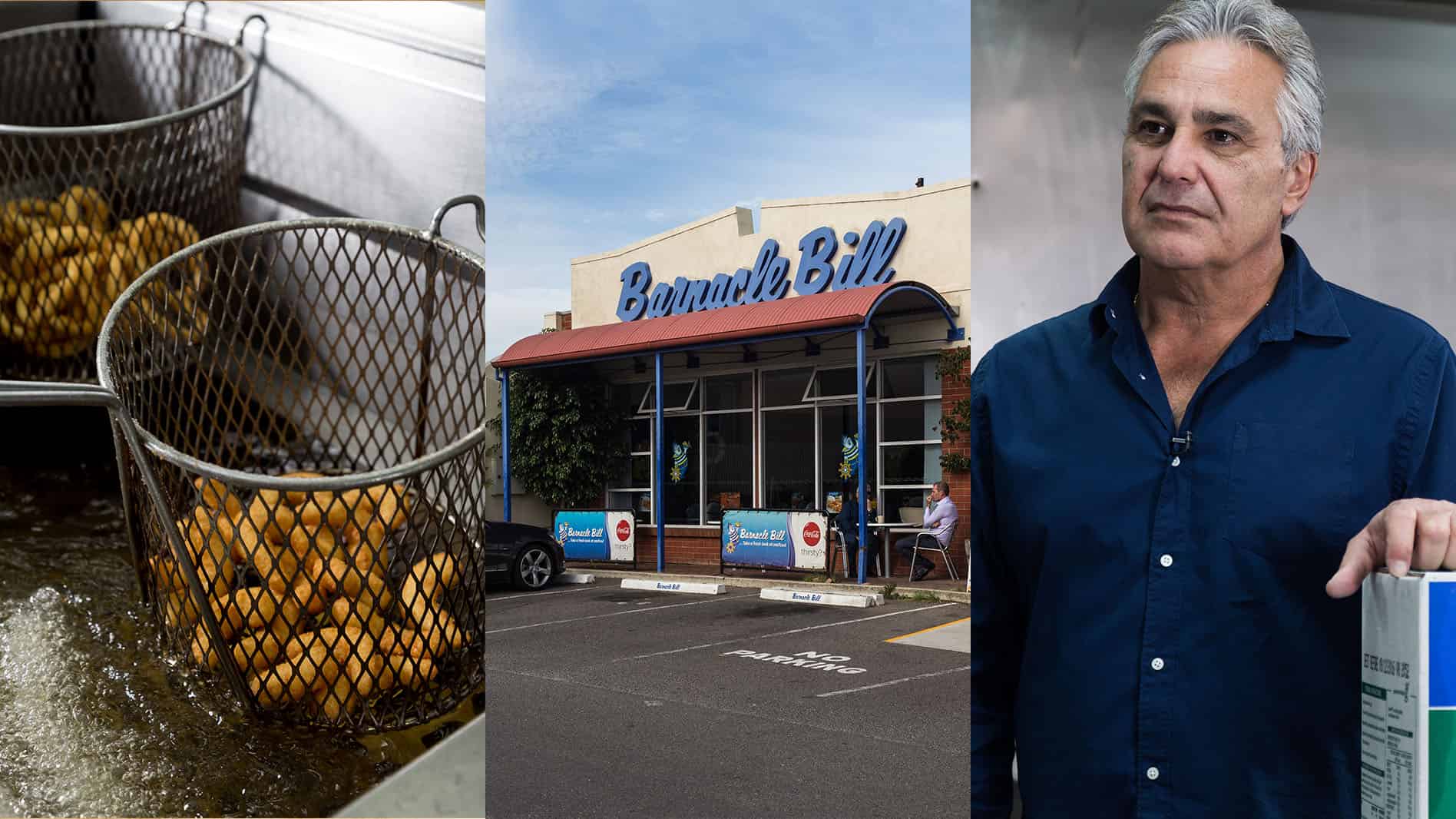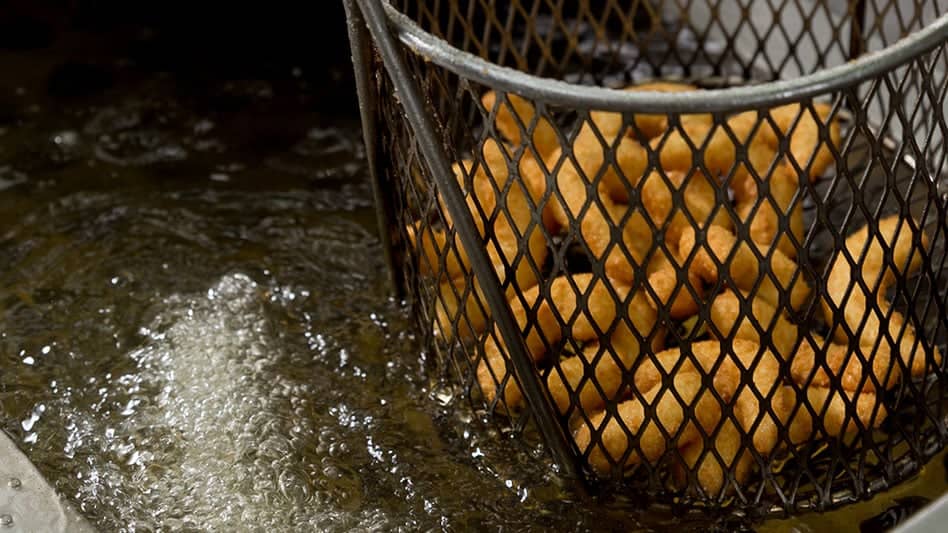
Are you tired of your food losing its beautiful flavour to the richness of oils from the deep fryer? We have the top four tips on how to treat your trusted deep frying oils, to regain your tasty customer-favourite dishes, while also saving your bottom line.
There’s nothing worse than serving a piece of deep fried food that’s oily and soggy, which is why it is important to treat your oils correctly. If you look after your oils with care, the foods that you dish up – and spend time preparing – will present the best flavours it has to offer. General manager of Barnacle Bill in South Australia, Angelo Karakousis has revealed his top four tips on how to look after your oils in the busy kitchen.
Regularly filter your oils:
“Filtration of the oils should be done at least twice daily,” Angelo has revealed, while explaining he filters and cleans his equipment with cleansing pads, as they are designed to deep clean the target areas. Though his equipment requires regular cleaning, Angelo advised the type/brand of oil you use, will also impact how often you need to filter. Over the last 20 years, Angelo has cooked his quality seafood products in Crisco Oils and has credited the range as low maintenance. He explained that the upkeep of his pans and fryers in his industrial fast-food kitchen had lowered dramatically, since switching over to Crisco. “The maintenance on these pans are almost non-existent,” the business-owner said.
Don’t mix foods together:
Chefs are advised to not mix different types of food in the frying oil, to avoid the blend of different food tastes and to help the oil last longer. Mixing of foods also includes not adding salt to the boiling oil. According to Chef’s Culinary, the salt “draws moisture to the food’s surface, which will splatter when the food is added to the hot oil.” The report also claims “salt breaks down the oil more quickly”, meaning it will need to be replaced faster, resulting in wastage of both money and oil.

ARE YOU GETTING YOUR MONEY’S WORTH FROM YOUR OIL SUPPLY?
Download your free Guide To Using Oils today to ensure your oil is going the full distance.
Make sure the oil temperature isn’t too high:
When using oil in your deep fryers in the kitchen, it is important to remember to heat the oil slowly and to the correct temperature needed for your dish. Chef’s Culinary has reported, “if the oil is not hot enough, the oil will reach the food before the coating cooks enough to form the protective layer. The result – greasy food”. Though, if your oil becomes too hot, your food will burn from the outside, resulting in the possibility of it not being cooked through.
Ensure you’re not overloading the fryer:
Barnacle Bill’s Angelo has also recommended chefs not to “overload” the fryer with either oils or foods. “To make sure the oil is looked after in the best possible way, don’t overload the oils with too much product or too old of a product,” he explained. It’s also important to remember that over time, the frying oil becomes downgraded after each use, meaning foods will absorb more oil during the frying process, resulting in them being left greasy and oily.

The key to achieving perfect, crispy, deep fried, dishes starts by finding the best oil for deep frying. Explore Goodman Fielder Food Service’s selection of premium frying oils.



